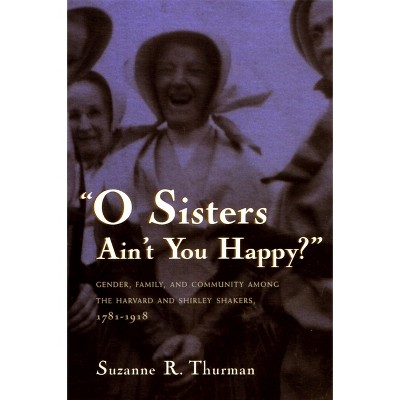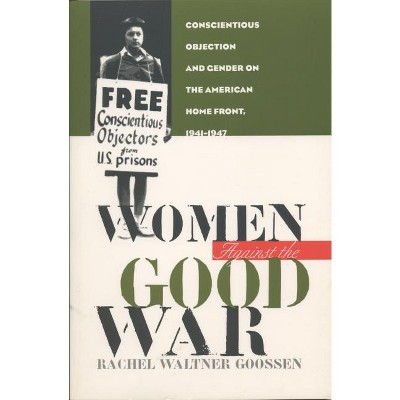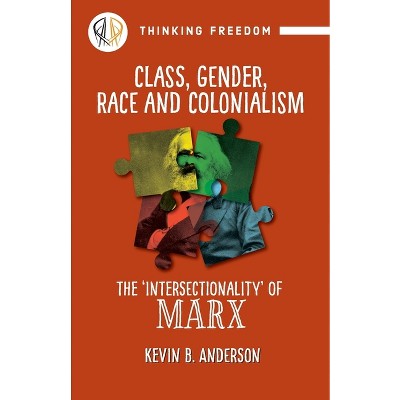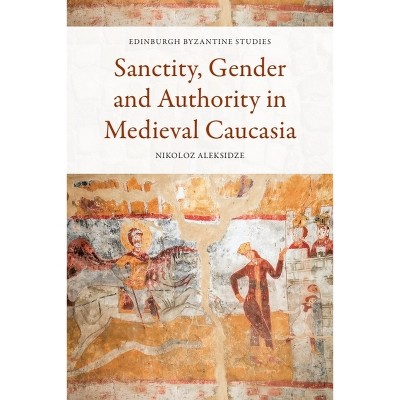About this item
Highlights
- The economics profession is belatedly confronting glaring gender inequality.
- About the Author: Ann Mari May is a professor of economics with courtesy appointments in history and women's studies at the University of Nebraska-Lincoln.
- 256 Pages
- Business + Money Management, Economic History
Description
About the Book
This book is a groundbreaking account of the role of women during the formative years of American economics. Blending rich historical detail with extensive empirical data, Ann Mari May examines the structural and institutional factors that excluded women, from graduate education to academic publishing to university hiring practices.Book Synopsis
The economics profession is belatedly confronting glaring gender inequality. Women are systematically underrepresented throughout the discipline, and those who do embark on careers in economics find themselves undermined in any number of ways. Women in the field report pervasive biases and barriers that hinder full and equal participation--and these obstacles take an even greater toll on women of color. How did economics become such a boys' club, and what lessons does this history hold for attempts to achieve greater equality?
Gender and the Dismal Science is a groundbreaking account of the role of women during the formative years of American economics, from the late nineteenth century into the postwar period. Blending rich historical detail with extensive empirical data, Ann Mari May examines the structural and institutional factors that excluded women, from graduate education to academic publishing to university hiring practices. Drawing on material from the archives of the American Economic Association along with novel data sets, she details the vicissitudes of women in economics, including their success in writing monographs and placing journal articles, their limitations in obtaining academic positions, their marginalization in professional associations, and other hurdles that the professionalization of the discipline placed in their path. May emphasizes the formation of a hierarchical culture of status seeking that stymied women's participation and shaped what counts as knowledge in the field to the advantage of men. Revealing the historical roots of the homogeneity of economics, this book sheds new light on why biases against women persist today.Review Quotes
May's account of the role of women in economics in its early years and her critical examination of economics' "old boys' network" is accessible and compelling, and should appeal not only to academics, but to anyone interested in how the intersection of gender, power, and status shapes institutions and intellectual discourse.-- "EH.net"
May's book addresses a gaping hole in our understanding where the role of gender in the development of economics is concerned and she makes a substantial, intriguing, and innovative contribution that deserves a broad audience, within and beyond the field of the history of economics.-- "European Journal of the History of Economic Thought"
Gender and the Dismal Science combines careful archival research, innovative empirical work, and a compelling narrative to tell the story of the barriers that women economists have faced since the birth of the field. With an accessible and compelling voice, May ensures this history of the hidden half can now be seen.
--Justin Wolfers, coauthor of Principles of EconomicsBravo to Ann Mari May for recovering and assembling novel data sets to buttress Gender and the Dismal Science's persuasive narrative of the experience of women--both black and white--in the early days of the profession and the construction of the field as a quintessential "old boy network."
--Cecilia Conrad, Pomona CollegeIn Gender and the Dismal Science, Ann Mari May confronts the contemporary challenge posed by the masculinist nature of the economics profession in the U.S. by offering its history. The result is an incisive, well-documented, and thoroughly readable account of the educational opportunities and professional experiences of women economists in the U.S.
--Helen Lefkowitz Horowitz, author of Alma Mater: Design and Experience in the Women's Colleges from Their Nineteenth-Century Beginnings to the 1930sTackling the issue from a modern and historical perspective, Ann Mari May reflects back on the historical and institutional trends, choices, rules, and behaviors that shaped the economics discipline in the first half of the twentieth century. Frankly, I don't know anyone else who could do a better job.
--Marianne Johnson, secretary of the History of Economics SocietyA rich historical narrative on the long-standing sources of such gender gaps.-- "Finance and Development"
By examining the early days of the profession, May sheds light on some roots of the issue...Recommended.-- "Choice"
This book makes for an excellent feminist reading of the evolution of economics.-- "LSE Review of Books"
About the Author
Ann Mari May is a professor of economics with courtesy appointments in history and women's studies at the University of Nebraska-Lincoln. She was a founding member of the International Association for Feminist Economics. She is the editor of The "Woman Question" and Higher Education: Perspectives on Gender and Knowledge Production in America (2008) and coeditor of the three-volume Feminist Economics (2011).





